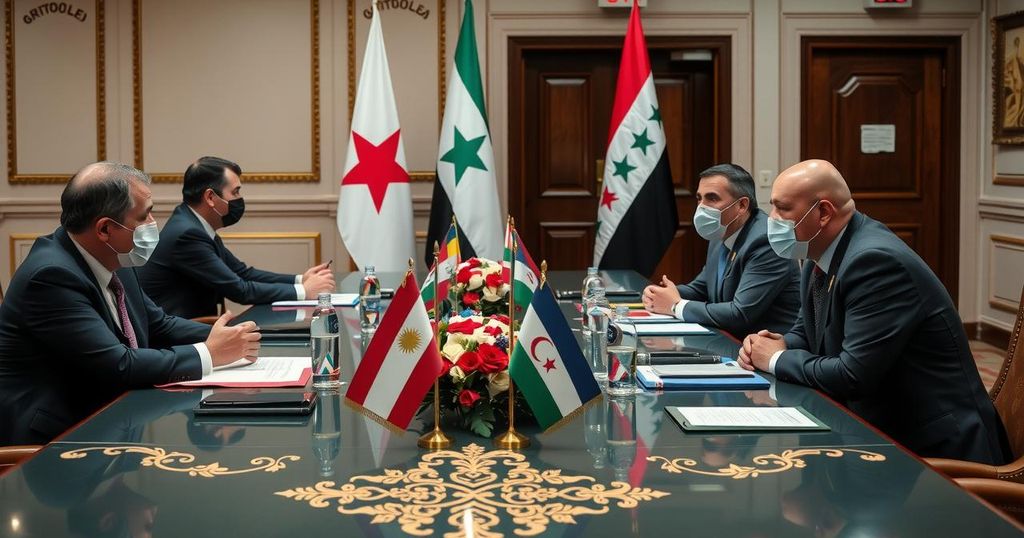U.S., Turkey, and Arab Leaders Advocate for Peaceful Transition in Syria

Officials from the U.S., Turkey, and Arab nations have pledged support for a peaceful transition in Syria after talks in Jordan, highlighting the importance of inclusive governance. Dialogues included direct contact with the rebel group Hayat Tahrir al-Sham and emphasized the need for regional unity, amid concerns about external influences from Iran and Russia. The meeting reaffirmed commitments to uphold minority rights and prevent terrorism during the transition, aiming to unify the Syrian population.
In a significant diplomatic initiative, officials from the United States, Turkey, and several Arab nations convened in Aqaba, Jordan, to advocate for a peaceful transition in Syria. Jordanian Foreign Minister Ayman Safadi emphasized the commitment to prevent Syria from descending into chaos. U.S. Secretary of State Antony Blinken acknowledged direct communication with Hayat Tahrir al-Sham (HTS), the rebel group pivotal in the civil strife that led to the downfall of President Bashar al-Assad’s regime. A collaborative statement emerged, calling for a Syrian government that upholds minority rights and denies sanctuary to terrorist factions.
The discussions underscored the critical need for a governance system that truly represents the diverse Syrian population, particularly following recent upheavals. Iraqi Foreign Minister Fuad Hussein raised alarms about the wider repercussions of Syria’s fate across the Middle East, explicitly cautioning against a Libya-like scenario of chaos post-Gaddafi. Turkish Foreign Minister Hakan Fidan reiterated the necessity of reforming existing Syrian institutions while ensuring terrorism does not exploit the transitional phase.
The HTS, despite its notorious history, has signaled intentions to pursue a more inclusive governance approach; however, skepticism persists regarding its capability to fulfill such aspirations. Notably, Blinken disclosed ongoing dialogues with HTS, especially concerning the unresolved case of missing American journalist Austin Tice, although the U.S. has maintained its classification of HTS as a terrorist entity. The absence of representatives from the Syrian government, alongside major supporters of the Assad regime—Iran and Russia—highlights the complexities of forging a unified political landscape in Syria.
The challenges for the nascent political structures in Syria are compounded by the external influences that have long complicated the conflict. Achieving harmony among international stakeholders is imperative to ensure that the aspirations of the Syrian populace for democratic governance are realized in an environment free from sectarian divisions.
The conflict in Syria, which erupted in 2011, has resulted in a protracted civil war that has devastated the country and created a humanitarian crisis. Over the years, various factions and external powers have intervened, often with conflicting interests. Recent developments have prompted new dialogues aimed at establishing a peaceful transition, with key regional powers recognizing the urgency of promoting governance that can restore stability and unity within a fractured state. The geopolitical stakes remain high, particularly concerning the influence of Iran and Russia, which have been pivotal in bolstering the Assad regime.
The cooperative stance taken by the U.S., Turkey, and Arab officials during the talks in Jordan signifies a noteworthy commitment to a peaceful transition in Syria. Challenges remain due to the historical complexities surrounding HTS and the absence of significant Syrian voices in the negotiations. Ensuring that the aspirations of the Syrian people are met through inclusive governance will require not only internal cohesion but also coordinated efforts from the international community to prevent further fragmentation of the nation.
Original Source: www.bbc.com








